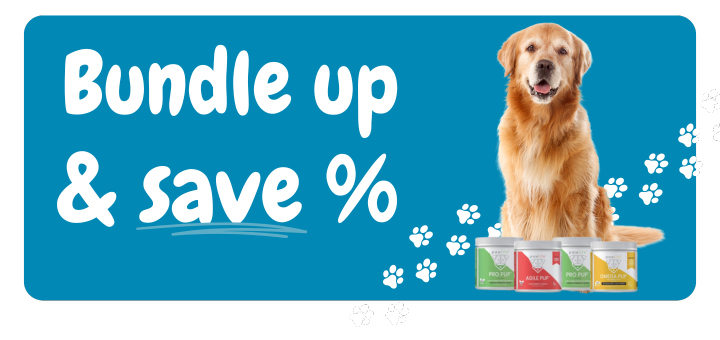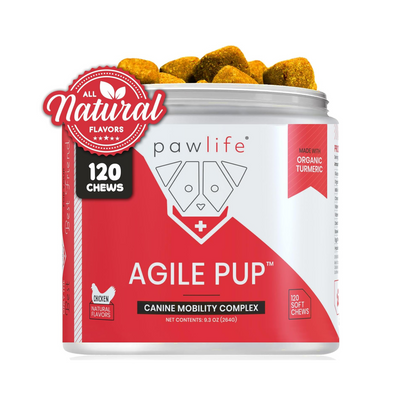Most Common Drug Toxicity in Dogs: Causes, Symptoms, and Prevention
Human medications may save our lives — but they can be extremely dangerous to dogs. Every year, thousands of pets suffer from accidental drug toxicity due to human prescriptions, over-the-counter medications, or supplements left within reach. Even a small dose of a human drug can cause severe poisoning in a dog, leading to life-threatening complications.
Dogs process and metabolize medications differently than humans do. Their smaller body size, different enzyme systems, and faster absorption rates mean that even “safe” human doses can quickly overwhelm their organs. Whether it’s an anti-inflammatory, antidepressant, or sleep aid, understanding which substances pose the highest risk — and how to respond quickly — can save your dog’s life.
At Pawlife Pets, we’re committed to supporting your pet’s wellness with education and preventive care. In this guide, we’ll explore the most common drug toxicities in dogs, what symptoms to watch for, and what steps to take if exposure occurs. We’ll also cover holistic ways to support your pup’s recovery and long-term health after a toxic event.
Understanding Why Dogs Are So Sensitive to Human Medications
While dogs are hardy in many ways, their bodies lack some of the key liver enzymes that humans use to break down drugs safely. Medications designed for humans often linger in a dog’s system longer, leading to toxic buildup. This is especially true for painkillers, antidepressants, and anti-anxiety drugs, which can alter vital organ function and cause neurological distress.
It’s not always intentional — curious dogs often chew through pill bottles or consume dropped tablets before owners even notice. According to the ASPCA’s Animal Poison Control Center, human medications consistently top the list of pet toxicities every year. Keeping a close eye on what your dog can access at home is the first step in prevention.
For general health resilience, daily immune support like Immune Pup helps strengthen your dog’s natural defenses, making them better equipped to handle stress and environmental toxins.
Most Common Human Drugs That Cause Toxicity in Dogs
Below are the most frequently reported categories of medications responsible for canine poisoning. Always assume human drugs are unsafe unless specifically prescribed for dogs by your veterinarian.
-
Aspirin and Other NSAIDs (Ibuprofen, Naproxen, Indomethacin)
NSAIDs are one of the most common causes of drug toxicity in pets. Even a single tablet can cause severe stomach ulcers, vomiting, internal bleeding, or kidney failure. Chronic exposure leads to irreversible liver and kidney damage. These drugs are especially dangerous for older dogs or those with pre-existing liver or kidney disease. -
Acetaminophen (Tylenol)
Acetaminophen poisoning causes massive liver damage and interferes with oxygen transport in the blood. Symptoms often include weakness, vomiting, dark-colored urine, facial swelling, and yellowing of the eyes (jaundice). Small dogs and puppies are particularly vulnerable. -
Antidepressants and ADHD Medications (Adderall, Xanax, SSRIs)
Medications affecting the central nervous system can cause hyperactivity, tremors, rapid heartbeat, seizures, or collapse. Amphetamines (like Adderall) can lead to dangerously high body temperatures and cardiac arrest, while benzodiazepines (like Xanax or Valium) can cause severe sedation or respiratory depression. -
Beta-Blockers and ACE Inhibitors
Drugs used to treat human heart conditions can cause dangerous drops in blood pressure and heart rate in dogs. Symptoms may include lethargy, fainting, cold extremities, and weakness. Even small amounts can trigger shock or cardiac failure. -
Thyroid Hormones
These medications can cause restlessness, increased heart rate, excessive thirst, and vomiting. Chronic exposure overstimulates the metabolism, leading to heart strain and high blood pressure. -
Sleeping Pills (Ambien, Lunesta)
While these medications may sedate humans, they often cause paradoxical effects in dogs — leading to hyperactivity, disorientation, and tremors. In other cases, they cause profound sedation and impaired breathing.

Common Symptoms of Drug Toxicity in Dogs
The symptoms of drug toxicity depend on the class of medication ingested, the dose, and the dog’s size and overall health. However, early recognition is key. If you suspect your dog has consumed any medication, seek veterinary help immediately — don’t wait for symptoms to worsen.
- Vomiting, drooling, or loss of appetite
- Abdominal pain, bloating, or swelling
- Lethargy or sudden hyperactivity
- Loss of coordination or staggering
- Seizures or tremors
- Jaundice (yellowing of eyes or skin)
- Dark urine or difficulty urinating
- Weak pulse or irregular heartbeat
- Collapse or unconsciousness
These signs may appear within minutes or take several hours to develop, depending on the drug and dosage. If you’re unsure which medication your dog may have consumed, bring the container or label with you to the vet — every detail helps determine treatment.
Emergency Steps: What to Do if Your Dog Ingests Medication
Acting fast can save your dog’s life. Follow these steps immediately:
- Contact your veterinarian or an emergency animal hospital right away. If possible, provide the name of the medication, dosage, and how much your dog might have eaten.
- Call the ASPCA Animal Poison Control Center at (888) 426-4435 for professional advice if you cannot reach your vet.
- Do not induce vomiting without professional guidance. Some drugs can cause additional harm coming back up, especially if your dog is unconscious or having seizures.
- Keep your dog calm and warm. Avoid excitement or unnecessary movement that could worsen symptoms.
- Bring any pill bottles, packaging, or evidence to the clinic. It will help your vet identify what your dog ingested and determine the right antidote or treatment.
Treatment for Drug Toxicity in Dogs
Once at the clinic, your veterinarian may administer activated charcoal to absorb toxins from the stomach, give IV fluids to flush out the drug, or use medications to protect the liver and kidneys. In some cases, specific antidotes exist for certain drugs. Supportive care — such as anti-seizure medication, oxygen therapy, or temperature regulation — may be required for stabilization.

During recovery, your vet will likely recommend rest and ongoing monitoring. To support healing, feeding a diet rich in antioxidants and omega-3s can help restore cellular health. Pawlife’s Wild Alaskan Salmon Oil provides vital fatty acids that promote liver recovery and reduce inflammation after toxic exposure. Pair it with Immune Pup for holistic immune reinforcement.
Long-Term Health Effects After Drug Exposure
Some dogs fully recover after prompt treatment, but others may experience lingering health effects, particularly in the liver, kidneys, or nervous system. Regular veterinary checkups are crucial in the months following toxicity. Bloodwork helps monitor organ function and ensures your dog’s system returns to balance.
For dogs with lasting sensitivity, dietary supplements that promote detoxification and inflammation control — such as Agile Pup for joint protection and Gut Grass Duo for digestive health — can help support resilience from the inside out. For a structured daily approach, read Daily Supplement Routines for Dogs.
Preventing Drug Toxicity at Home
Store Medications Securely
Keep all human and veterinary medications in closed cabinets or drawers well out of reach. Never leave pills on nightstands, counters, or in purses where dogs can easily access them. Even blister packs can be chewed through quickly.
Never Self-Medicate Your Dog
Even if your dog seems to be in pain or showing symptoms similar to humans, never give over-the-counter medications without veterinary approval. Painkillers like ibuprofen or aspirin can have drastically different effects in dogs. For safe pain management, consult your vet about pet-formulated alternatives.
Be Mindful of Visitors and Family Members
House guests or children may unintentionally drop pills or leave bottles open. Make sure everyone in the home understands the importance of medication safety. You can also create a “pet-safe zone” in your house where your dog stays when guests are present.
Maintain Regular Vet Visits
Routine wellness exams are essential for early detection of internal issues that may worsen after toxin exposure. Your vet can provide advice specific to your dog’s breed, weight, and health status, helping you prevent future emergencies. Learn how to build wellness into every stage of your dog’s life with Daily Supplement Routines for Dogs.
Watch for Behavioral Clues
Sometimes, dogs ingest harmful substances when they’re anxious or bored. Chewing, licking, or raiding trash bins may indicate stress or separation anxiety. To help reduce these destructive tendencies, pair enrichment toys with calming support from Calm Pup. You can also read Dog Anxiety 101 for a deeper understanding of stress behaviors.
Final Thoughts: Protecting Your Pup from Accidental Poisoning
Drug toxicity in dogs is a preventable tragedy. By staying vigilant, keeping medications safely stored, and acting quickly if exposure occurs, you can protect your dog from serious harm. Remember that your pup’s body processes substances very differently than yours — and even a “safe” human dose can be deadly to them.
If your dog ever ingests a medication, seek veterinary help immediately. Time matters — the sooner treatment begins, the better the chance of full recovery. Once your dog is safe, focus on rebuilding their strength with a balanced diet, natural supplements, and plenty of rest. For immune and organ support post-recovery, explore Immune Pup and Wild Alaskan Salmon Oil for gentle, natural nourishment.
Your dog depends on your care and vigilance — and a few simple precautions can make all the difference in keeping them safe, healthy, and happy for years to come.













